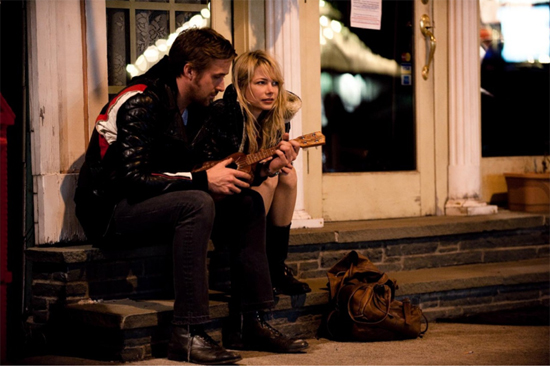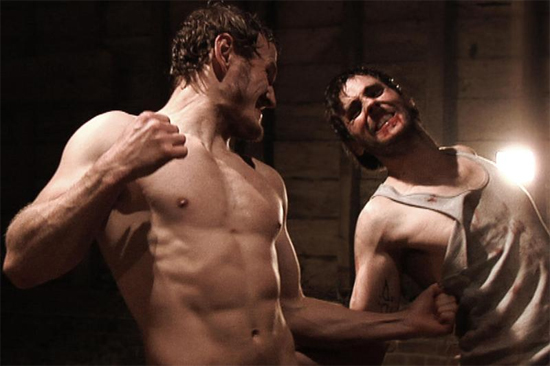Gasland
The great Western didn’t die or lose relevance; it just morphed and transmuted into the exposé documentary. Gasland is this century’s Pale Rider, though stripped of all the ‘old time’ romanticism and sexual tensions. Fast-forward 150 odd years from Clint Eastwood riding into the sunset, and the bad guys have grabbed all the land, ripped holes in it, and won.
Armed only with a camera and a banjo, director Josh Fox (a brilliant lone hero name if ever there was one) sets out on a righteous mission to stick it to the overlords who, in malicious pursuit of profit, are hell bent on screwing the oppressed, hard working common American. It’s about saving the Wild West: people versus power, morals versus law, and – the moral twist – semantics and sophistry versus empirical evidence.
The phenomenon under scrutiny is the controversial drilling techniques used for extracting gas from the earth. Known as "hydraulic fracturing", or "fracking", a hole is drilled into the ground before a cocktail of chemicals are introduced to create sufficient pressure to crack the surrounding earth, allowing for easier access to the gas supply.
When Josh gets a letter from a power company offering a considerable sum of money to lease his land, which sits above a huge gas supply, he investigates the possible environmental ramifications for his much loved boyhood home. Apparently these are severe, with each new discovery inducing spasmodic vomiting of disgust, rage and disbelief.
As Josh drives across America visiting various effected areas, his flowing, dulcet narration and poetic analogies give his film the movement of a Kerouac road trip. He encounters people whose lives have been massively effected by nearby fracking; you know something has gone wrong when water that comes out of a tap is flammable – not in a modest flicker of light way, but actually so it turns the tap into certified flame thrower that wouldn’t be out of place in Home Alone. This is caused by the ham-fisted inaccuracy of fracking, which has the honed finesse of a chemical-ridden Hulk thumping the ground. There’s no accurate way of controlling where the freed gaseous chemicals end up. As it turns out, they get into the water supplies of local residents, into to nearby streams, rivers, plants and crops, and eventually into the blood supply of wild animals, livestock and people.
On top of the never-ending list of acute illnesses of effected residents and hair loss of animals, there’s the mounting deaths. Yet in the courts, the onus is placed entirely on effected parties to demonstrate an unquestionable causal connection between fracking and their illnesses – a near impossible task.
The persuasive force of Gasland is mainly down to Josh’s understated investigative style, though at times you wish he were more confrontational. As residents show their physical and environmental ailments, executives from power companies hang themselves with their flimsy arguments and silence, and actions overpower rhetoric when a bottle of tap water is offered to one such executive who had just claimed fracking has no damaging environmental results.
Neither is the film a gush of worthy sentimentalism against progress. With fastidious investigation and research into the chemicals and the political motivations behind the loose environmental laws that prevent sufficient research into the lasting effects of fracking, he shows these techniques as themselves anti-progressive in their lack of forethought and reliance on Orwellian state secrecy. This adds to a conclusion that is both optimistic and frightening. Though throughout the film he pushes for a solution to gas extraction that wouldn’t result in total environmental annihilation, it’s obvious through his shots of idyllic nature that no gas is the ultimate solution – it’s a credit to the film that this is suggested but not stated, as this would sound unrealistic and over ideological.
Blue Valentine

Surprising. Not shudderingly brilliant; more surprising in the way you might accidentally put your hand in something squishy only to find out it’s melted chocolate. What might first appear to be a run of the mill cheesy romance about an irritatingly quirky couple, whose Disney-love is shot through the lie of indy sensibilities, is actually only partially so. As a whole, Blue Valentine serves more as an antidote for such flicks. What if this young carefree couple grew up, got married and had a kid? Well, this is what would happen. They’d grow bitter and disillusioned, that’s what. In this way Blue Valentine is an agreeable take on the genre that, if you can stomach the obligatory shakey-cam, will squeeze a tear oozing through the cracks of the most cynical eyes.
Dean (Ryan Gosling) is loving father of four year-old Frankie, on whom he dotes with adorable devotion. His wife, Cindy, takes the role of breadwinner and zoo-keeper, preparing all the food and overseeing everyone else’s schedules. Dean, of course, is the one that never grew up; five years on he’s still embedded in the mindset which fuelled their young love all that time ago. His fun loving attitude – enabled through hardly working and letting Cindy attend to all the household chores – means he’s the favourite parent, slashing annoyance and disdain across the face of his labouring wife.
Life wasn’t always this rough for the pair. And where Blue Valentine comes out on top is in its building and carefully timed reveal of the couple’s history. Beginning at the downward slope of their marriage, sympathies sway towards worn-out Cindy. Yet as the film chops back and forth between the present and the ignition of their romance, the complexities of their relationship unfold and send sympathies swaying between the two parents.
As the thrust of Blue Valentine isn’t the erupting gooeyness of the couple’s relationship, their quirky seduction – though in parts it still plays like an advert for Match.com – becomes bearably charming where it could have been wearing. This is made all the more endearing by the fact that Dean’s mannerisms – his slow drawl, simple wisdom and the optimism of a particularly excitable dog – are comically similar to Rocky Balboa when he’s chatting up a lady. Put a handsome face on Rocky’s slurred ramblings, and a social nuisance is transformed into the dream of attractive young ladies everywhere.
Travellers

There must be a mistake somewhere. How did this cinematic equivalent of a nursery’s nativity play end up on a screen? It’s as if someone’s school project has somehow lifted itself up and, by its own volition, strolled into a screening room and, due to some gigantic mix-up, got played by mistake. Yet given its comical naivety, this seems the most likely explanation for how it got a (very limited) cinema release.
It’s almost impressive how a film can last an hour and a half yet leave nothing laudable to say about it. For a start, it’s a buddy movie demonising gypsies, which even in the 90s would be a worn out cliché. It’s awfully trite and unnatural dialogue flops out of characters’ mouths as if written, not from life experience, but lifted out of context from a bunch of Tarantino films – and things a Mexican gangster might sound cool or convincing saying do not always transpose to rural England. Here, it just sounds forced and embarrassing.
Four friends from the city embark on an adventure holiday in the country. Well, we all know that folk from the country and city gents don’t mingle – just shake up this tension and watch it explode. For some reason, one of the city buddies starts vandalising a caravan. Enter some angry travellers, followed by a cat and mouse chase in circles round a forest. One of the city buddies decides he’s going to try to reason with the angry mob, but gets held captive and forms an intimate relationship with his captor’s sister after she flashes him some side-boob. There are a couple of poorly executed twists near the end, but by that point you’re beyond caring.
Like its wayfaring characters, Travellers staggers slow and wounded through a field of elementary errors. The whole film plays like a show-reel of cheap cinematic techniques and "special" effects, as if cobbled together by a student. This cobbled together lording of Guy Ritchie climaxes with one of the most comical fight scenes, incidentally in an underground boxing ring surrounded by haystacks. One of the buddies takes a vicious pounding to the head for about fifteen minutes of montage hitting, getting up again and again. It just gets ridiculous.
Erm, something positive… though it’s tempting to want to flush Travellers to obscurity, its brazen rankness will actually make you laugh – there are few films that could be improved with a laughter track. This is one of them.


